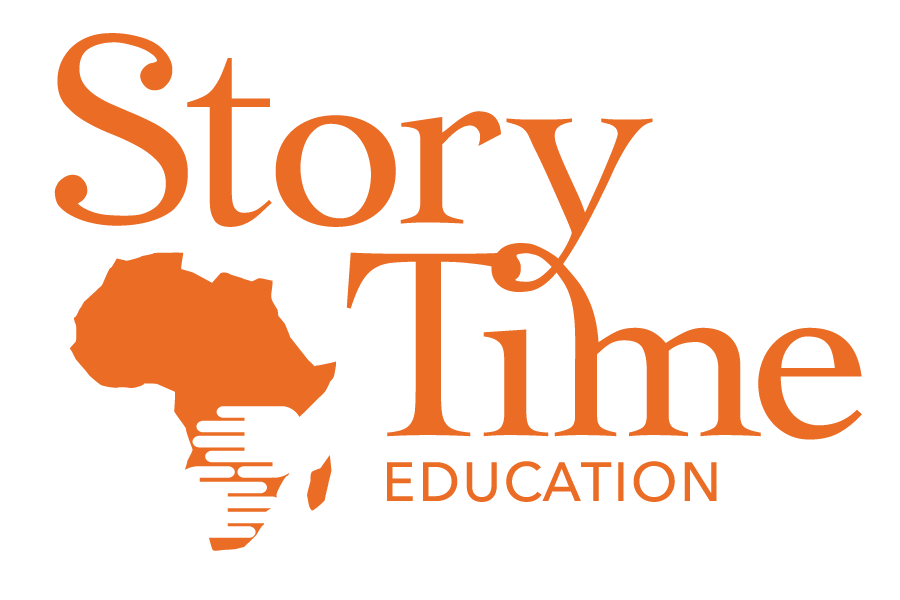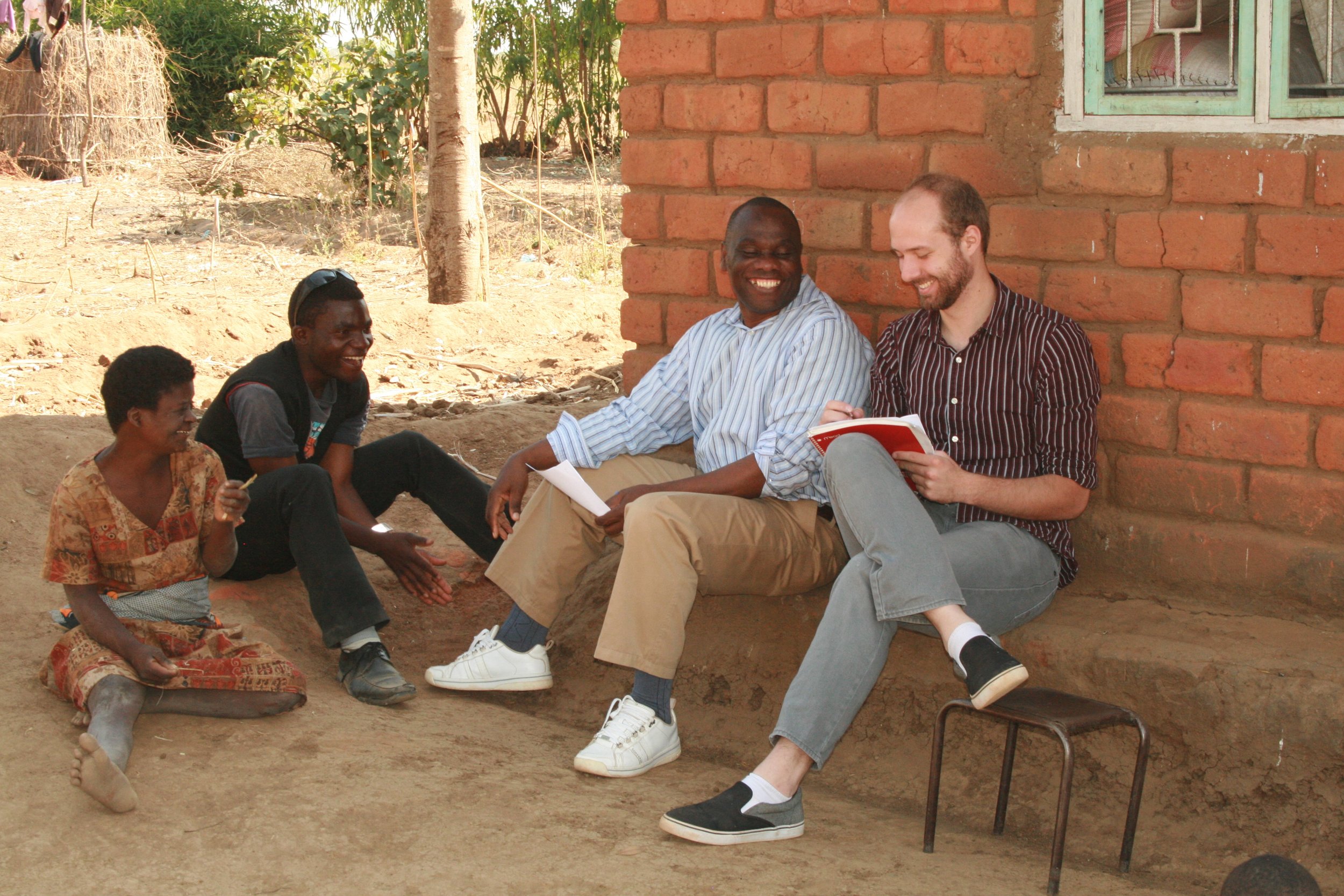From right to left: Aaron Hauger, Zikani Kaunda, and students being interviewed.
Our History
President and co-founder Aaron Hauger grew up in the small town of Yankton, South Dakota. During his time in the Yankton school system, he was identified as a student in need of special education. Even at this time, Aaron knew that he wasn’t a poor reader, he simply had social anxiety while reading. Therefore, he always felt like he was misidentified by the education system. As a result of this and by observing others around him that truly needed help, Aaron could see that he wanted to do more to build an educational system that worked for students and adapted to their needs. In high school, Aaron claimed that he would start a school that taught people based on their learning needs and worked to strengthen divergent learning styles. He also promised himself that the school would also help all peoples and communities struggling with educational adversity. The school would focus on instructing students in a way that caters to their individual learning styles and provides alternative avenues of success without penalizing students for their unconventional learning abilities.
It was this drive to work toward a better system that brought Aaron to the University of Minnesota in 2011. Fatefully, Aaron chose to live in a house close to the University of Minnesota, and across the hall lived the future co-founder of Story Time. Vice President Zikani Kaunda and Aaron Hauger often found themselves in the common area of the house talking about education and educational conditions in Malawi, where Zikani is from. The very early seeds of Story Time were planted through those conversations. At the end of the academic year, Zikani was back in Malawi, and Aaron found himself at a crossroads in his life. At this time, he read a book by the founder of Toms, and began to connect the dots of his ambitions, conversations with Zikani, and the call to action from the book.
At one point, Zikani mentioned “If you wanted to do something nice for someone in my country, buy them a bike.” He said this because the economy of Malawi, especially rural Malawi, is micro. If an individual can get their grain to the market faster on a bike, they will in turn have more time and money. Aaron wanted to start a business that collected old bikes, fixed them, and sold them at a profit, that would allow him to buy bikes for students in Malawi.
“If you want to do something nice for someone in my country, buy them a bike.”
He very quickly emailed Zikani, and Zikani suggested what Aaron already knew; that he would need to travel to Malawi and talk to the students themselves before anything was to start. Aaron’s first trip to Malawi was in late December 2012. Zikani welcomed Aaron at the airport, and within days, Aaron was visiting the sites in which the now Dr. Zikani Kaunda was at the time conducting his Phd research. After days of research, Aaron and Zikani quickly discovered that instead of buying one bike for students that could already afford to go to school, they could send four students to school. Right before Aaron’s departure, he began laying the foundations for what is now the Women’s Empowerment Project and Standard Sponsorship Project.
We supplied pads for sixty girls and sponsored seventeen students from $400 donated by Aaron’s friends and family. Aaron came back to the United States, and work began on forming a non-profit. Story Time was born. The name Story Time was chosen because Zikani attributed the foundation of Story Time to the conversations between Aaron, the community, and himself. Aaron chose Story Time because he believes that everyone’s life is their story, and it was time for him to be working toward his aspirations, but ultimately Story Time affirms that many communities know what their community needs are, but they sometimes lack the financial and technical needs to overcome the challenges themselves. We believe taking the time to listen to people’s stories will cultivate true community partnerships that will lead to sustainable community-led development innovations.


